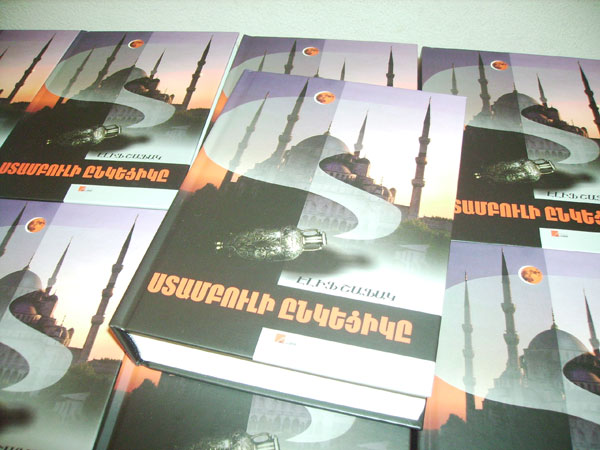The presentation of the Armenian translation of Turkish novelist Elif Şafak’s novel “The Bastard of Istanbul” took place in the Arno Babajanyan Concert Hall today. The book was translated into Armenian by Maro Madoyan-Alajajian, a translator and an Armenian American literary critic. Levon Ananyan, the president of the Union of Writers, attaching importance to Şafak’s piece, stated that Armenian writers couldn’t write about the genocide very well because Armenians still felt the pain under their skin.
“Really, foreign writers present the genocide much better, since Armenian writers have tried lots of times, but that pain under our skin is aching so much that we seem not to be able to take a step back and look at that great tragedy of the 20th century,” the president of the Union of Writers stated, noting that it was very important that a revolution had taken place in the very Turkish nation’s mind, and Şafak’s novel, according to Ananyan, is definite proof to that. The author of the Armenian translation of “The Bastard of Istanbul,” Maro Madoyan-Alajajian, said that once she had read the first lines of the book, she realized that it should be translated into Armenian. “I was sure that it should be translated into Armenian. I was sure once I had read the first lines. When I first heard Şafak’s interview, I felt how sad her voice was. There was such sadness in her voice.
“It was one month after Hrant Dink had been killed,” Maro Madoyan-Alajajian said and added that the book’s translation mainly aimed at showing that there existed people like Elif Şafak. Let us state that after the book about the Armenian Genocide had been published in Turkey, the author of the book, Elif Şafak, was charged under Article 301, which is about insulting national identity. In order to escape the persecutions of nationalists, the 42-year-old Turkish woman now lives in London. Before this translation, the Antares publishing house had translated the novel from Turkish, and this translation is from English. By the way, Şafak wrote it in English. Let us note that the whole profit from the novel’s translation will be spent on assistance to insolvent students of the Gyumri State Pedagogical University.”
Ashot ATAYAN



























































